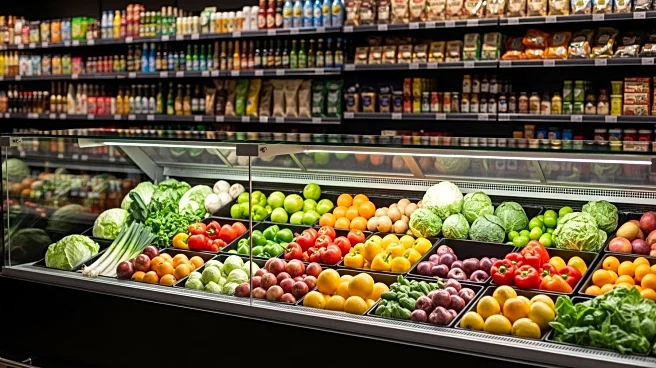What's Happening?
At the 2025 NACS Show held at McCormick Place in Chicago, leaders from the National Association of Convenience Stores (NACS) emphasized the importance of foodservice as a growth opportunity for convenience
stores. NACS President and CEO Henry Armour, along with his successor Frank Gleeson, discussed the competitive landscape between convenience stores and quick-service restaurants (QSRs). Gleeson, who will assume the role of NACS President and CEO on January 1, highlighted that foodservice sales accounted for 28.7% of in-store sales in 2024, a significant increase from 11.9% in 2004. The convenience store industry is capturing more market share from QSRs, leveraging their proximity to customers and ability to cater to multiple day parts. Armour stressed that convenience stores should not benchmark against each other but rather focus on competing with QSRs in terms of speed to market and menu execution.
Why It's Important?
The emphasis on foodservice represents a strategic shift for convenience stores, aiming to diversify their offerings and increase customer loyalty. By capturing more market share from QSRs, convenience stores can enhance their profitability and customer engagement. This shift is crucial as traditional sales from fuel and packaged goods face challenges from evolving consumer preferences. The ability to offer diverse food options throughout the day positions convenience stores as a viable alternative to QSRs, potentially reshaping the competitive dynamics in the foodservice industry. This development could lead to increased investments in foodservice infrastructure and innovation within the convenience store sector.
What's Next?
As convenience stores focus on expanding their foodservice offerings, they may invest in new technologies and menu innovations to compete effectively with QSRs. This could involve partnerships with foodservice providers or the development of proprietary foodservice brands. The industry might also see a shift in marketing strategies to highlight the convenience and variety of food options available. Stakeholders, including store owners and foodservice suppliers, will likely monitor consumer responses to these changes and adjust their strategies accordingly. The success of this initiative could influence broader trends in retail and foodservice sectors.
Beyond the Headlines
The push towards foodservice in convenience stores may have broader implications for urban planning and community development. As convenience stores become more integral to daily life, they could play a role in shaping local economies and food accessibility. This shift might also prompt discussions on health and nutrition, as convenience stores expand their food offerings. Additionally, the competitive pressure on QSRs could lead to innovations in their business models, potentially benefiting consumers through improved service and product quality.









